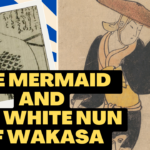

D: Did you finish your editing when your house was being remodeled?
SW: Yes I did. And it was a challenge, but yes I did and the thing is…I did and I didn’t. I finished my pass through with my editor‘s comments. So yes this is a professionally edited novel. Yes I did pay for that. Yes it cost a lot of money. (Laughs) No I probably won’t recoup it for a year. But…
D: In the end it’s going to be worth it though because unlike other material where…
SW: Indie publishing is an interesting beast because it still has a bit of a stigma attached, even though what’s really funny about it is I chose to go indie published because I talked to an agent who was interested in my book. She loved it. She thought it was great. She told me my first two to three books would have to be self-published, and I was like then why do I want to… “well we can possibly get you into one of the smaller presses but you’re still going to have to pay for editing, you’re still going to have to buy your own art, and your artist proof, you’re still going to have to pitch in for the hard copies that you want to sell”, and I’m like so what am I getting out of this? She’s like “well you get a publisher’s stamp, you get professional typesetting.” Now wait a minute, I have a friend who is starting a publishing house, she is an amazing typesetter, she has a publisher’s stamp, and she’ll do my book, I’ll have to pay her, but I’d much rather give an up and coming small house my money than just say, oh yeah, there’s this check box over here that I’ve checked off that says I am “agented”, because the agent wasn’t going to get me much, except for… and even marketing she’s like “well we’ll tell you where to market it but you’re still going to have to do all the leg work”.
D: So you’re basically paying somebody who’s telling you how to do or pay for what you need to do?
SW: Well you’re not paying them; you’re giving them a cut of your royalties forever.
D: Oh!
SW: Yeah so you’re giving up a cut of your royalties and it’s like no, no no no no. I don’t like this. So I paid an editor, Vicky Hay, she’s fantastic. I paid her to edit my book. I got it back and I started going through it, and it was wonderful because she was picking out things that I had missed on my edit passes and that even my beta readers missed on all of their passes, from the standpoint of repetitiveness.
D: Oh, yeah.
SW: And she was really good at picking up things like you used this exact phrase 15 pages ago.
D: Oh wow!
SW: Oh it was fantastic and I’m just going ‘this is great’ and so I started going through it and I went “I’ve seen myself use this a couple times, where else have I used it”? Let’s look for all the different variations of this word. And that made me start re-writing little sections so then I had to go through and do a full other edit pass.
D: Right.
SW: So my last edit pass was just clean up, just go and make sure I ran it through grammarly, I ran it through a word grammar checker, and then I just did a full read on it just to make sure I had everything in place. My final edit added 6,000 words to the story. Mainly because Vickie pointed out parts where she’s like “You’ve got something in your head here that didn’t come out”.
D: You got to flesh it out.
SW: “This section needs a little fleshing. This is great. I can see where you were going but you skipped something right here”. And I was like “I did.”, and I just added three paragraphs and all of a sudden it just flowed. I was like “Awesome!”.
Both: (laugh)
SW: That editing process was just invaluable, and I’m really glad that I chunked out the money for it. So when you say “did you get through the editing pass?” yes I did. I got through that editing pass, but then I did three more. I was up till 4 in the morning at one point.
D: I have a quote from you “30% exciting 70% terrifying, 100% necessary”.
SW: Right, (laughs).
D: Yeah I wouldn’t know anything about rewriting.
SW: And that’s the thing, there’s the other part of that too. That’s where the terrifying comes in. Eventually you just have to say ok it’s done. The beautiful part about indie publishing is, if there is something glaring, which I don’t think there will be because I worked really hard on this, but if there is, you can always release an updated revision, and offer it to the people who bought your book, for free or discount or whatever. For the next 30 days you can download the kindle version for free to anyone who purchased prior. So there is that option. And it’s kind of a safety net, but it’s one I don’t want to have to use. I want it to go out. I want it to be solid the first run. I’m a little bit of a perfectionist. So believe me it’s been fine tooth combed about 25 times.
D: Reminds me of that scene in Space Balls.
Both: “We ain’t found shit” (Laugh).
SW: Yeah that was my last pass on it, actually it wasn’t because my last pass on it I found one error. There’s three references to the title Dungeons & Dragons in the book. And it was Dungeons with the ampersand Dragons in two of them and it was Dungeons and Dragons in the third one.
D: Oh yeah.
SW: Since it’s a trademarked name and I’m giving trademarked credit I have to…
Both: Use the ampersand.
D: Yeah. Speaking of D&D obviously you’re a gamer, you’ve been gaming since…
SW: 12.
D: Wow!
SW: With my cousin Max, he’s the one who introduced me, 11 or 12. Yeah and we would go down to Astoria and we would hole up in my cousin’s bedroom and we would play D&D till all hours of the night. Whether it was just me and him, or a group of friends, we always had a game going. Then I brought that back with me to Washington, and brought my love of it back, and by the time I was 14, I was avidly gaming with people in my school. And you know I hooked up with the gamer geeks and then by the time I was 16 we were running weekly games in multiple systems and we even had the band director, for Peninsula High School who would play in our Star Trek campaign with us. Yeah it was fantastic. We played G.U.R.P.S., we played D&D, we played Star Trek, we played Star Wars, (laughs). There’s a character in my book who’s a cross between my first DM, and Neil Gaimon.
Both: (laugh)
D: Yeah, I got to check that out, that (laughs)
SW: So, my character in Rising, one of the characters, is actually named partially after him and after my grandfather. They both have the same name, Lawrence. So I tend to throw nods to people who were really significant in my life, in my books.
D: Most writers do.
SW: Either through a name, or through a town, or a description, or something. And so because Lawrence was so influential on me as a gamer growing up, he gets a nod, but my grandfather as well, because my grandfather is my gypsy spirit. He is my gypsy spirit and I consider him as a spiritual guide and my earliest memories are of him doing magic tricks, mostly hiding life savers behind his ear or behind my ears or whatever. He was a character.
D: He sounds amazing
SW: He was a character, and now he’s a character.
D: Right!
Both: (laugh)
D: Have you always wanted to be a writer or is this kind of a new thing?
SW: As long as I’ve been able to hold a pen. I don’t remember the act of learning how to read, I don’t remember the act of learning how to write, it’s been ingrained in my body since birth I swear. My sister said I was born knowing how to read.
D: Wow!
SW: Growing up I was really good at math and science. Like stupidly good at math and science. I’d always been writing stories. D&D was an outlet. I could always world build. I could always design characters, and plots, and stories and it was such an outlet, and I would write short stories then I’d scrap ‘em. (laughs) I had a friend who was writing novels at the time and I was like ooh that’s so cool, I could never do that.
D: (laughs), and yet here we are.
SW: And here we are. I finished a computer science degree, and then I was going to go into the FBI, still trying to give a big f-you to the math and science people out there in the world, I was going to go into the FBI.
D: Right.
SW: So I apply to the FBI, made it through the psych screen, made it through the first round of testing, and I was gonna go, and I got a job offer in Phoenix for three times the salary.
D: Wow!
SW: At an internet startup and I went ‘I want to do this, but that makes so much sense. And I’m not sure where this is gonna lead, and this is really solid, I don’t know what to do and I went “we’re going to Phoenix”. That made my first husband happy. So we came out to Phoenix and that job lasted exactly one year.
D; Oh wow!
SW: Oh yeah, (laughs), so that job lasted exactly one year and it was a fun year. It was a blast I have to say. It was the most fun I’ve ever had in my computer science career. I’ve always wanted to go back to writing, and I had one professor in college and I’m sure you’ve seen his name if you read my blog, Jimmy Cheshire, I mention him often and I’m still in contact with him, and I consider him… it is funny he goes, ‘mentor I’ll accept, muse is a little much’.
Both: (laugh)
D: Yeah I kind of see his point.
SW: But I call him my mentor and my muse. He was there at the moment that I decided to call myself a writer. When I finally gave up on “I am someone who writes stories” to “I am a writer”.
D: Yeah that’s a big difference.
SW: There is a really big difference there, and he was there that day and it was when I decided to get my English writing minor. It was one of those things where we were a week out from classes starting for the semester and his class was full but it was the one I needed to take first, and it was only offered once a year.
D: Oh wow!
SW: And so I’d have to wait…
D: A whole year…
SW: A whole year before I could start this thing and that would put me off track for graduating. But I had to take this class before I could take upper level classes. It was creative writing 202. So I went and I knocked on his door and I sat down in his chair and he goes “Who are you?” And I go “I need to be in your class.” And he’s like “Well it’s full”. I’m like “I don’t care; I NEED to be in your class. I am a writer.” And he was like “Ok there’s a lot of us that are writers”. And I’m like “No you don’t understand. I’m not someone who writes stories, I am a writer, and I need this. I need this. I need it”. And he was like “Tell you what, come to my class, sit in I’ll put you down as audit, if anybody drops you’re first in line”. And he goes “No one else who is on my wait list has come in to my class- er into my office”.
D: Wow!
SW: He moved me to the front of the line. There were six other people on that wait list. And the first story I wrote in his class, I got published in the school literary magazine, it was a dystopian society thing and he and I would sit and talk for hours, I mean just hours, long after office hours ended and the school was closing, and he and I would just be ‘blah blah, blah’ and we really inspired each other. We became very good friends. He and I still stay in contact. He follows my blog.
Both: (laugh)
SW: I just wonder if I’d be where I am if he hadn’t stopped and listened that day.
D: Yeah. It is such a pivotal moment.
SW: It was, it was huge. And then it was like I was able to go home after that and say ‘yes I’m a writer’. And then it was just like the stories poured out of me. Of course I’ve lost all of them over the years.
author’s edit: for more about Shanan and her novel Rising, while you wait for part 3 of our interview, look for her online at the following:
www.risingnovel.com
interpreterofinspiration.com
www.facebook.com/ShananWintersWriter
Look for Part 3 of our interview with Shanan Winters soon!






